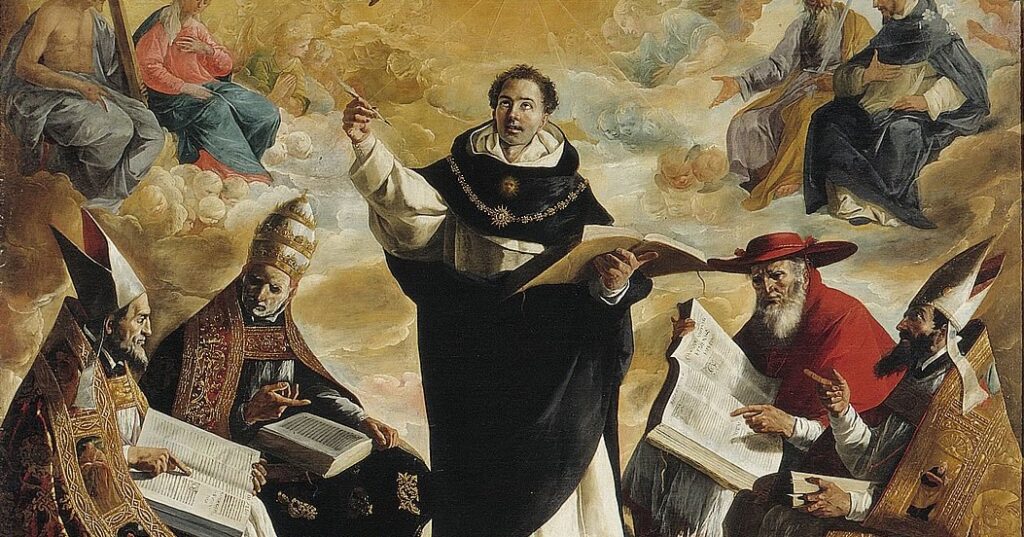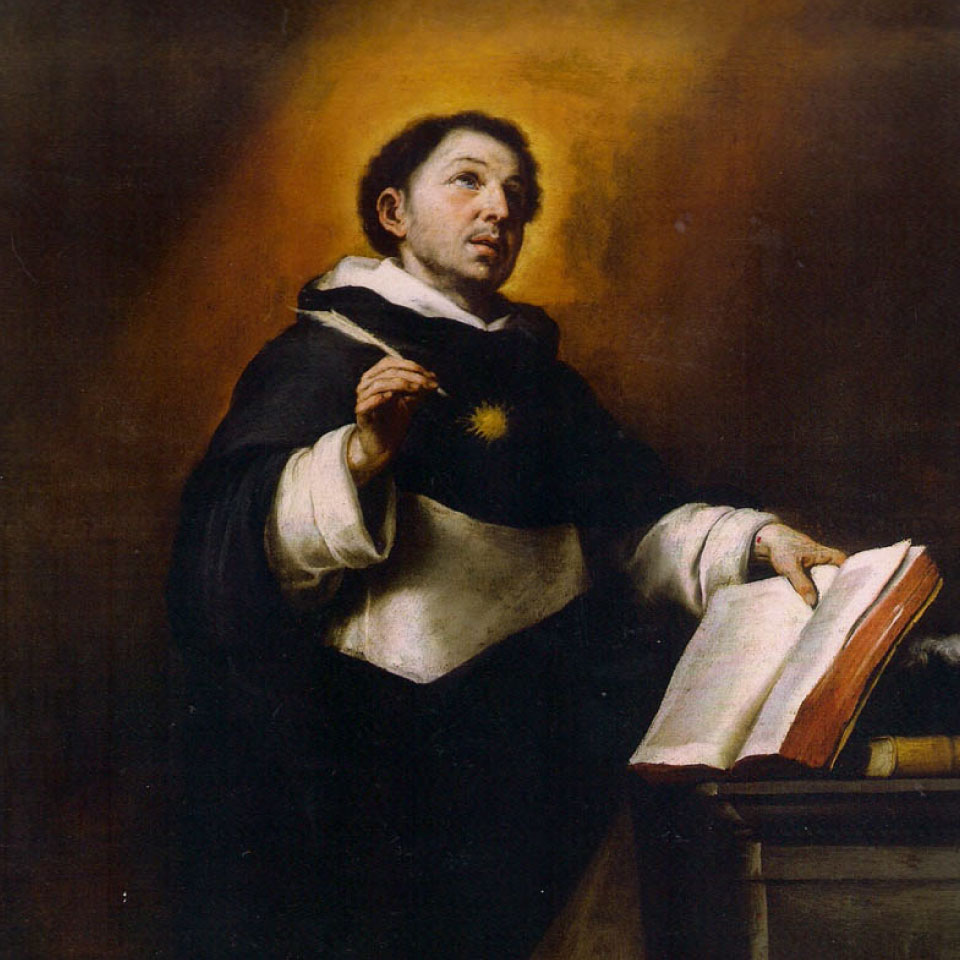St. Thomas Aquinas
St. Thomas Aquinas
St. Thomas ranks among the greatest writers and theologians of all time. His most important work, the Summa Theologiae, an explanation and summary of the entire body of Catholic teaching, has been standard for centuries, even to our own day. At the Council of Trent it was consulted after the Bible.

To a deeply speculative mind, he joined a remarkable life of prayer, a precious memento of which has been left to us in the Office of Corpus Christi. Reputed as great already in life, he nevertheless remained modest, a perfect model of childlike simplicity and goodness. He was mild in word and kind in deed. He believed everyone was as innocent as he himself was. When someone sinned through weakness, Thomas bemoaned the sin as if it were his own. The goodness of his heart shone in his face, no one could look upon him and remain disconsolate. How he suffered with the poor and the needy was most inspiring. Whatever clothing or other items he could give away, he gladly did. He kept nothing superfluous in his efforts to alleviate the needs of others.

After he died his lifelong companion and confessor testified, “I have always known him to be as innocent as a five-year-old child. Never did a carnal temptation soil his soul, never did he consent to a mortal sin.” He cherished a most tender devotion to St. Agnes, constantly carrying relics of this virgin martyr on his person. He died in 1274, at the age of fifty, in the abbey of Fossa Nuova. He is the patron saint of schools and of sacred theology.
— Excerpted from The Church’s Year of Grace, Pius Parsch